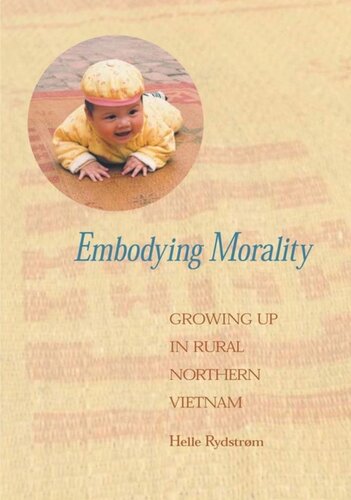

Most ebook files are in PDF format, so you can easily read them using various software such as Foxit Reader or directly on the Google Chrome browser.
Some ebook files are released by publishers in other formats such as .awz, .mobi, .epub, .fb2, etc. You may need to install specific software to read these formats on mobile/PC, such as Calibre.
Please read the tutorial at this link: https://ebookbell.com/faq
We offer FREE conversion to the popular formats you request; however, this may take some time. Therefore, right after payment, please email us, and we will try to provide the service as quickly as possible.
For some exceptional file formats or broken links (if any), please refrain from opening any disputes. Instead, email us first, and we will try to assist within a maximum of 6 hours.
EbookBell Team

4.3
48 reviewsOne of the first anthropological studies based on extensive fieldwork in Vietnam in decades, Embodying Morality examines child-rearing in a rural Red River delta commune. It is a sophisticated and intriguing exploration of the ways in which a family system based on principles of male descent influences the moral upbringing and learning of girls and boys.
In Vietnamese culture boys alone perpetuate the patrilineal family line; they incorporate the past, present, and future morality, honor, and reputation of their father's lineage. Within this patrilineal universe, girls are viewed as blank sheets of paper and must compensate for this deficiency by embodying tinh cam (sensitivity, sense). Such attitudes play a significant role in the upbringing of girls and boys and in how they learn to use and understand their bodies. Helle Rydstrøm offers fresh data--from audiotapes, videotapes, textbooks, observations in the home and at school--for identifying the transformation of local and educational constructions of females, males, and morality into body styles of girls, boys, women, and men. She highlights the extent to which body performances in daily life produce, reproduce, and challenge widespread northern Vietnamese ideals of femininity and masculinity.
The author's highly original application of post-structuralist theory to Vietnam blends epistemology, practice, body, and socialization theories with feminist analysis and relates these to children's learning. By proposing the body as an analytic category that can move feminist theory beyond the impasse of the well-established opposition between sex and gender, Embodying Morality demonstrates vividly how specific cultural elaborations of corporeality are learned, lived, and experienced in contemporary rural Vietnam.